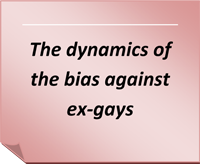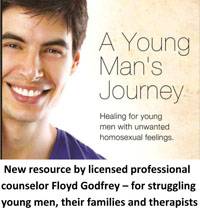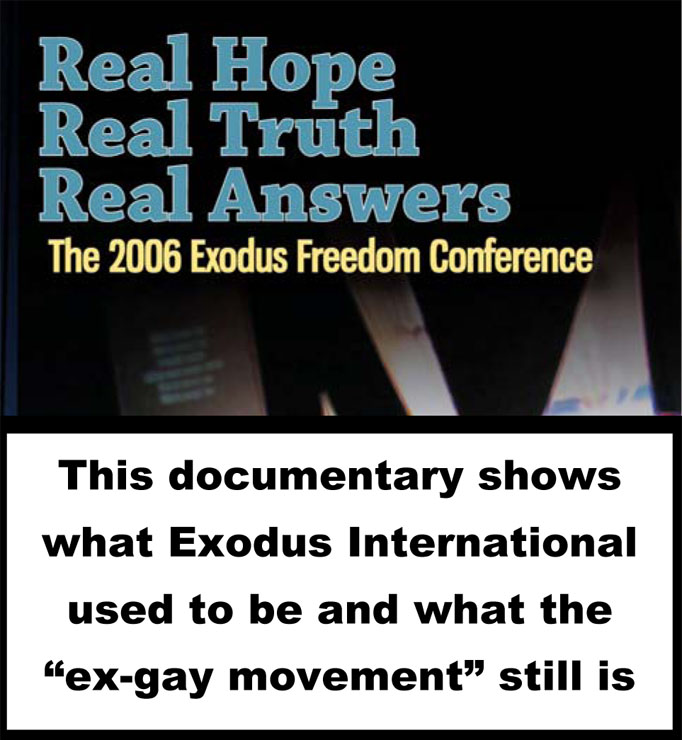Misinformation on homosexuality rampant in the mental health field
May 15, 2012
Dr. Julie Hamilton argues in an article published on the NARTH website that misinformation on homosexuality abounds in the mental health profession. Here is an excerpt from her article: “It is clear that people are not simply born homosexual. It is also important to note that most people do not choose their attractions. Instead, homosexual attractions are most likely a complex combination of factors, just as is the case with any other developmental issue.”
“Regarding the second part of my statement referenced in this psychologist’s letter, the myth that people cannot change is a myth for the following reasons:
1. It only takes one person having changed to nullify the myth that change is not possible.
2. There are thousands of people who claim various degrees of change in behavior, lifestyle, attractions, or all of the above.
3. Change is documented in the professional literature spanning at least the past one hundred years. A review of the
literature demonstrating that change is possible is published in a peer-reviewed journal, Journal of Human Sexuality. This particular volume contains hundreds of references (NARTH, 2009).”
“In an attempt to evaluate the research findings, the APA put together a very biased, six member task force of individuals to look at the scientific literature regarding the issue of sexual orientation change efforts (SOCE). Each member of this task force was opposed to SOCE, and not one proponent of SOCE was included on the task force. They looked at all of the literature and dismissed any studies showing SOCE to be successful. They dismissed credible studies by applying research standards that are not applied to any other homosexuality research – not the gay parenting literature, not outcome studies on gay-affirmative therapy (which by their standards has never been found to be successful and has not been shown to be without harmful effects). In the end, they could not, as reasonable professionals, definitively claim that SOCE is ineffective or that it is harmful. At best, all they could claim was, ‘…there is little in the way of credible evidence that could clarify whether SOCE does or does not work in changing same-sex attractions’ (APA, 2009, p. 28, emphases added).”
“Saying there is not enough evidence is not saying that it does not work. More research is needed, as is the case with many approaches to therapy and treatment for many therapeutic issues. There are countless methods of therapy that have never been proven through rigorous research studies to be both ‘effective or ethical,’ as the writer of the letter is suggesting must be done before one can claim that any type of change is possible.”
“Furthermore, regarding misguided claims of harm, the APA task force also admitted there is not enough evidence to claim that this type of therapy is harmful, “There are no scientifically rigorous studies of recent SOCE that would enable us to make a definitive statement about whether recent SOCE is safe or harmful and for whom” (APA, 2009, p. 83).”
The full text can be found at http://narth.com/2012/05/misinformation-rampant-in-the-mental-health-field/.




